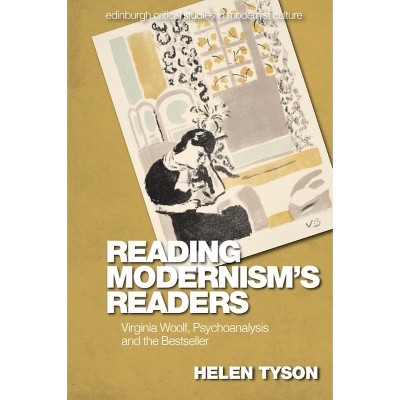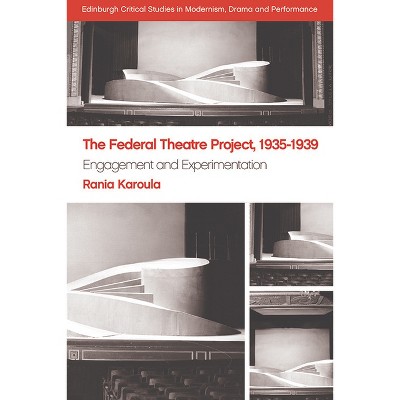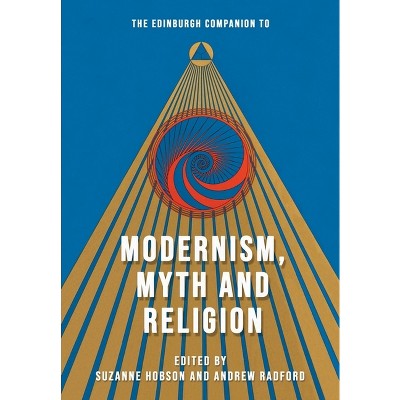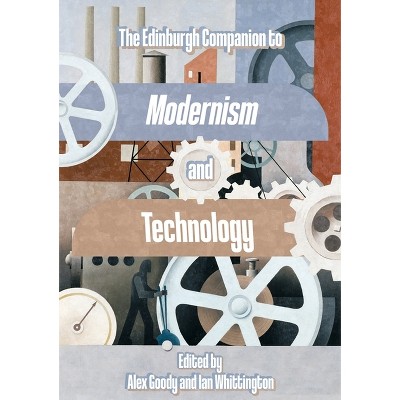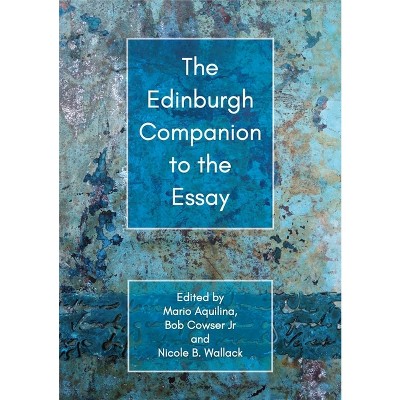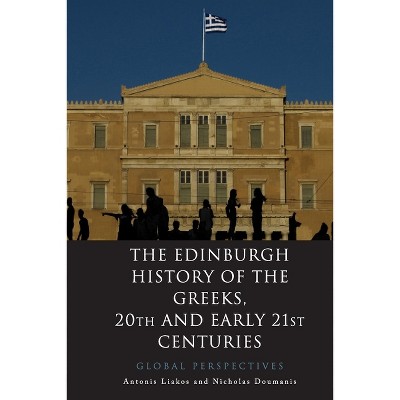The Edinburgh Dictionary of Modernism - by Vassiliki Kolocotroni & Olga Taxidou (Paperback)

About this item
Highlights
- An interdisciplinary reference source of the critical, cultural and political practices associated with modernismMuch of the literary and cultural theory developed throughout the twentieth century relied on modernist texts and artefacts as both example and paradigm.
- About the Author: Vassiliki Kolocotroni is Senior Lecturer in English Literature at the University of Glasgow.
- 504 Pages
- Philosophy, Aesthetics
Description
About the Book
In concise entries from international experts, this dictionary presents the terms, categories, concepts, tropes, movements, forged through the modernist upheavals, highlighting their genealogy, their modernist 'newness', and their historical longevity.
Book Synopsis
An interdisciplinary reference source of the critical, cultural and political practices associated with modernism
Much of the literary and cultural theory developed throughout the twentieth century relied on modernist texts and artefacts as both example and paradigm. This Dictionary collects, categorises and intersects literary, aesthetic, political and cultural terms that in one way or another came into being through the debates, conflicts, co-operations, experiments - individual and collective - that characterised modernism. In concise entries from international experts, it presents the terms, categories, concepts, tropes, movements, forged through the modernist upheavals (at once aesthetic and political), highlighting their genealogy, their modernist 'newness', and their historical longevity.
Key Features
Provides new and authoritative definitions of the revolutionary art, thinking and intellectual culture which flourished in the opening decades of the last centuryDemonstrates the ways in which modernism reconceptualised and realigned all twentieth- century art forms while also formulating the critical and cultural languages of that centuryShows that modernism, in unique ways, already entailed its self-definition and articulated its own critique
From the Back Cover
*APPROVED* 'Dandyrubs elbows with dasein; Kino-Eyejostles kitsch; Négritudeand Neo-pagansare nearest neighbours. Its entries elegantly conceived, beautifully written and boundlessly informative, this is not only an irreplaceable but also a profoundly enjoyable work of reference for anyone, novice or expert, interested in modernism from abstractionto zaum.' Douglas Mao, Johns Hopkins University An interdisciplinary reference source of the critical, cultural and political practices associated with modernism Much of the literary and cultural theory developed throughout the twentieth century relied on modernist texts and artefacts as both example and paradigm. This Dictionary collects, categorises and intersects literary, aesthetic, political and cultural terms that in came into being through the debates, conflicts, co-operations, experiments - individual and collective - that characterised modernism. In concise entries from international experts, it presents the terms, categories, concepts, tropes, movements, forged through the modernist upheavals (at once aesthetic and political), highlighting their genealogy, their modernist 'newness', and their historical longevity. Key Features - Provides new and authoritative definitions of the revolutionary art, thinking and intellectual culture which flourished in the opening decades of the last century. - Demonstrates the ways in which modernism reconceptualised and realigned all twentieth- century art forms while also formulating the critical and cultural languages of that century. - Shows that modernism, in unique ways, already entailed its self-definition and articulated its own critique. Vassiliki Kolocotroni is Senior Lecturer in English Literature at the University of Glasgow. She is an expert in international modernism and the avant-garde, with special interests in theory, surrealism, film, travel writing and the modernist reception of classical and modern Greece. Olga Taxidou is Professor of Drama and Performance Studies at the University of Edinburgh. Her research focuses on the centrality of performance and the theatrical paradigm for our general understanding of modernism. Cover image: Simultaneous Contrasts: Sun and Moon, 1912--13, Robert Delaunay. Cover design: www.hayesdesign.co.ukReview Quotes
The Edinburgh Dictionary of Modernism is definitely a pathway to the genealogy of the modern from the beginning until nowadays.--Georgia Tsatsani, University of Birmingham "Diogenes 9 (2020)"
Dandy rubs elbows with dasein; Kino-Eye jostles kitsch; Négritude and Neo-pagans are nearest neighbors. Its entries elegantly conceived, beautifully written, and boundlessly informative, this is not only an irreplaceable but also a profoundly enjoyable work of reference for anyone, novice or expert, interested in modernism from abstraction to zaum.-- "Douglas Mao, Johns Hopkins University"
The Edinburgh Dictionary of Modernism is definitely a pathway to the genealogy of the modern from the beginning until nowadays.--Georgia Tsatsani, University of Birmingham "Diogenes 9 (2020)"
The book coheres beautifully and highlights the paradox of modernism's opposition to and reliance on past traditions.--A. C. Stout "CHOICE"
About the Author
Vassiliki Kolocotroni is Senior Lecturer in English Literature at the University of Glasgow. She is an expert in international modernism and the avant-garde, with special interests in theory, surrealism, film, travel writing and the modernist reception of classical and modern Greece.
Olga Taxidou is Professor Emerita of Drama and Performance Studies at the University of Edinburgh, and Visiting Professor at New York University. She is the author of The Mask: a Periodical Performance by Edward Gordon Craig (1998, 2001), Tragedy, Modernity and Mourning (2004), Modernism and Performance: Jarry to Brecht (2007) and Greek Tragedy and Modernist Performance: Hellenism as Theatricality (2021). She is co-editor of Modernism: An Anthology of Sources and Documents (1998), Post-War Cinema and Modernity: a Film Reader (2000) and The Edinburgh Dictionary of Modernism (2018).
Shipping details
Return details
Trending Poetry






